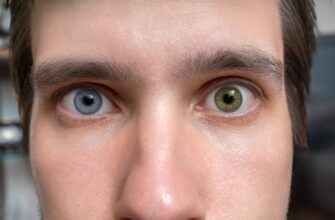Vertigo is a condition characterized by a sensation of spinning or dizziness. It can be a debilitating condition that affects an individual’s quality of life. In this article, we will explore the symptoms, causes, diagnosis, and treatment options for vertigo.
What are the symptoms of vertigo?
The symptoms of vertigo can include a feeling of spinning, tilting, or swaying. Other symptoms can include nausea, vomiting, sweating, and difficulty standing or walking. These symptoms can be constant or intermittent, and they can last for minutes or hours.
What are the causes of vertigo?
Vertigo can be caused by a variety of factors, including inner ear problems, head injuries, migraines, medications, and neurological conditions. Inner ear problems, such as Benign Paroxysmal Positional Vertigo (BPPV), are a common cause of vertigo.
How is vertigo diagnosed?
To diagnose vertigo, a doctor will perform a physical exam and review the patient’s medical history. They may also perform tests, such as the Dix-Hallpike maneuver, to evaluate the patient’s balance and inner ear function.
What are the treatment options for vertigo?
The treatment options for vertigo depend on the underlying cause. For example, if the vertigo is caused by BPPV, a doctor may recommend canalith repositioning maneuvers, such as the Epley maneuver. Medications, such as antihistamines, can also be used to treat vertigo symptoms.
Can vertigo be prevented?
There are some steps that can be taken to reduce the risk of developing vertigo. These include avoiding head injuries, managing migraines, and reducing the use of medications that can cause vertigo.
What are the complications of vertigo?
Vertigo can lead to complications, such as falls and injuries. It can also affect an individual’s quality of life by limiting their ability to perform daily activities.
What is the prognosis for vertigo?
The prognosis for vertigo depends on the underlying cause. Some cases of vertigo can be resolved with treatment, while others may be chronic.
When should I see a doctor?
It is important to see a doctor if you are experiencing symptoms of vertigo, especially if they are affecting your daily activities or if you have a history of head injuries.
Can vertigo be treated at home?
There are some home remedies that can be used to manage vertigo symptoms, such as avoiding sudden movements, staying hydrated, and getting plenty of rest. However, it is important to consult with a doctor before trying any home remedies.
What lifestyle changes can help with vertigo?
Making lifestyle changes, such as reducing stress, getting regular exercise, and avoiding alcohol and caffeine, can help manage vertigo symptoms.
Conclusion
Vertigo can be a challenging condition to manage, but with proper diagnosis and treatment, many individuals can find relief from their symptoms. It is important to work with a doctor to determine the underlying cause of vertigo and to develop an appropriate treatment plan. By taking steps to manage vertigo symptoms and reduce the risk of complications, individuals can maintain their quality of life.











